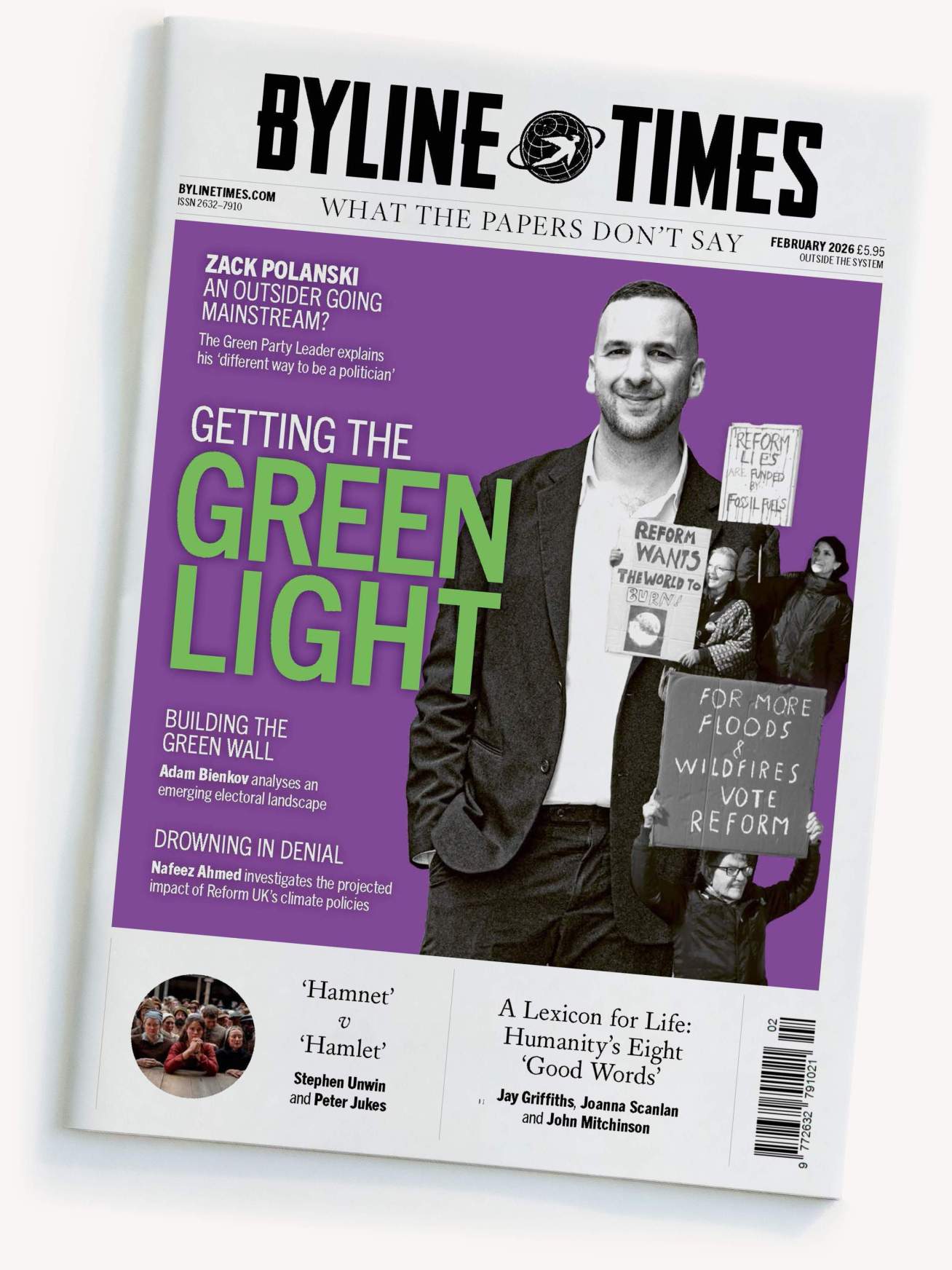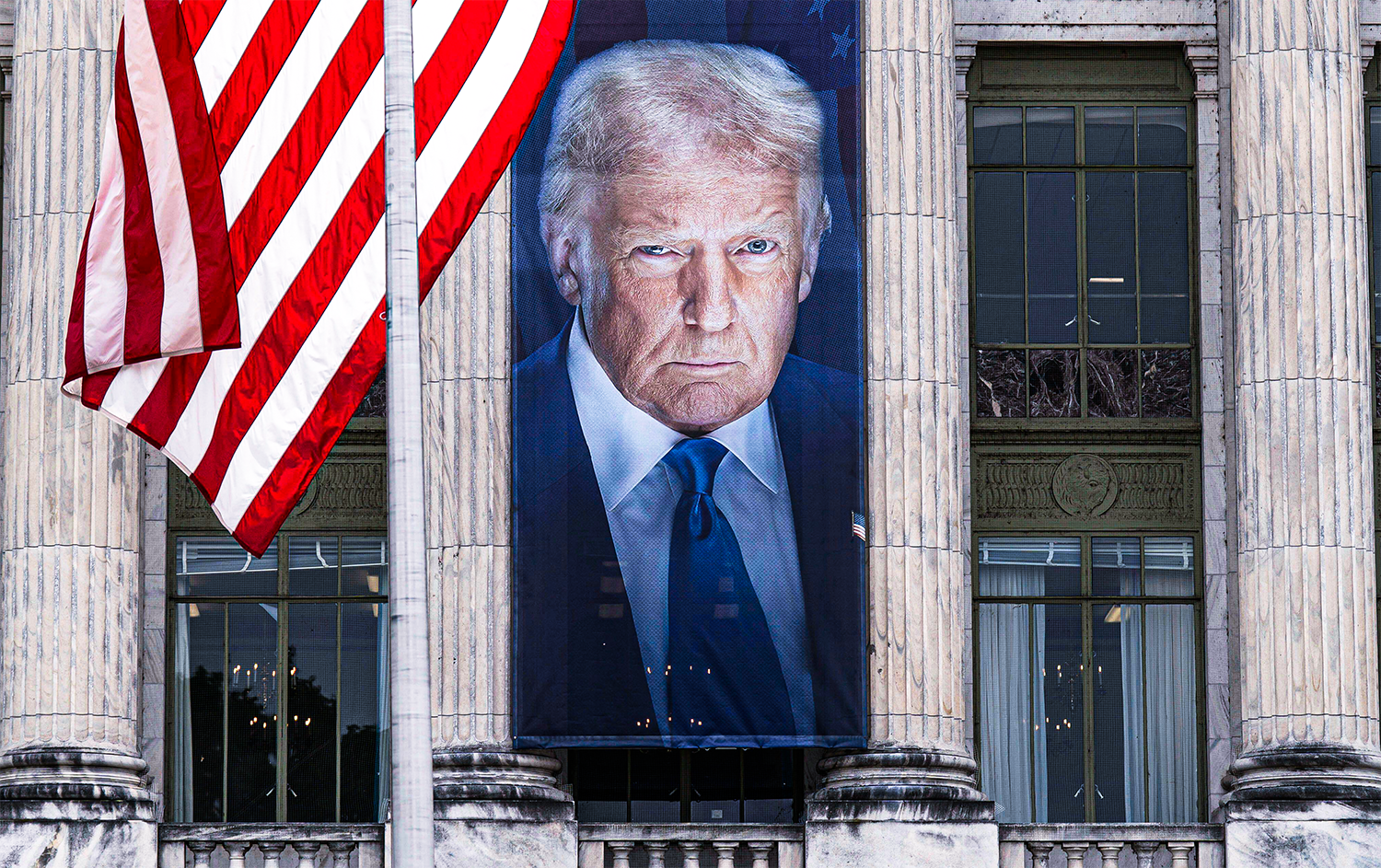
Read our Monthly Magazine
And support our mission to provide fearless stories about and outside the media system
Last week I finally deactivated my X account for good. It’s still going to take a few weeks for the content to be permanently deleted, because Elon Musk’s website gives you up to 30 days to change your mind. However, this time, I am determined not to go back.
The immediate cause was a feeling of both shock and shame at the extreme reactions I received in response to a post I made about the death of Charlie Kirk – where I reiterated my genuine condemnation of his vile murder, but also expressed the view that he did not deserve to be hailed as some sort of saintly martyr. I was deluged with hateful comments, accusing me of glorifying his death, and of hypocrisy, since I had not been similarly critical of those mourning the death of George Floyd.
I must admit the comments gave me pause. Was I just adding to the toxic stew of polarization and hatred in America, and insulting those who genuinely admired him, by daring to venture that Charlie Kirk was not perfect? I didn’t think my comments were dreadfully barbed, or even unjustified. However, on reflection, I concluded that they were inappropriate, especially given the circumstances of his killing. I felt mortified, immediately deleted the post, and decided that I actually ought to take a step back from X, if only to give myself time to reflect on how I came to this point.
I subsequently realized I was feeling a deeper emotion – fear. Fear at the extreme tone of some of the reactions to my post, some explicitly aggressive. And fear that, in today’s toxic climate, anything I post on X might one day be used against me. We’ve all seen the experiences of others on X who’ve unthinkingly tweeted something which they’ve later regretted, and tried to delete – only for screen shots of those posts to be recirculated endlessly by others, haunting the original poster forever.
The very nature of social media encourages hasty reactions to things we’ve seen or read. It’s caused me to make my own fair share of posts on X, which I’ve later regretted. When I first started using twitter, rather than use the “cowardly” option of deleting poor posts, I used to try to own up to my mistake, apologise to those I had offended, and pledge to try to do better. On the whole, I used to receive an understanding response.
Increasingly, however, I’ve found that genuine remorse no longer leads to any forgiveness, leeway or grace, but instead to more censure, for having been so wrong in the first place. Not just the content of my offending post is criticized, but my entire character is attacked and found wanting. More and more comments are becoming personal, insulting, and, in some cases, threatening.
Even more carefully drafted posts now generate extreme reactions. For example, it is almost impossible to say anything about the situation in Gaza, without being attacked from all sides – for appearing to condone Israel’s actions in Gaza, supporting genocide, or being a terrorist sympathizer. It’s almost impossible to say anything negative about political developments in the UK, without being lambasted as a failed Ambassador, a loser, a traitor, or someone who hates the UK. It’s almost impossible to criticize Trump, without being told to “go home, if you don’t like it here”, being accused of being a “libtard”, or of suffering from Trump Derangement Syndrome.
I am not a well-known public figure. My posts rarely receive more than a few hundred likes or reposts. So, the risk of actual danger to me is relatively low. I can barely imagine how awful it must be for someone with a genuinely high profile, who dares to speak out on current events, or is in a position of influence. It takes real courage for politicians, commentators, and celebrities to keep going, when they face constant intimidation and threats, and the very real risk that the verbal attacks on them could morph into an actual physical attack – as was the case with Charlie Kirk, and a host of other public figures in America recently.
Nevertheless, I am scared. I’m not famous. But, I do regularly get invited to write or comment on current events in the US or the UK. As someone who cares deeply about the future of both these countries, as a resident, a citizen, a taxpayer, and a voter, I also feel compelled to speak out when I see something wrong. If everyone stays silent, bad deeds go by unchallenged. I am not a big somebody. But, I am not a nobody either. We all have a voice. We all have agency. We can choose whether to support, to oppose, or to stay silent. We all have a role to play. Some would even say we have a duty.
But, as reported in the Hill recently, The White House is using the assassination of Charlie Kirk as a basis to go after left-wing groups generally and threaten crackdowns on certain types of rhetoric. JD Vance called on member of the public to report on anyone allegedly celebrating Kirk’s murder. Attorney General Pam Bondi declared that the administration would “go after you if you are targeting anyone with hate speech.”
To their credit, many prominent conservative commentators immediately condemned Bondi’s remarks, noting that hate speech was protected under the First Amendment of the Constitution. But, many private individuals who posted criticism of Kirk in the wake of his death have been fired from their jobs after their names were reported to their employers. The Attorney General also threatened to sue the company Office Depot over the alleged refusal of one of its employees to print posters for a vigil commemorating Kirk. All this is bound to have a dampening effect.
A bill was recently proposed to Congress by Rep. Brian Mast (R-FL), the chair of the House Foreign Affairs Committee, which could potentially give Secretary of State Marco Rubio the power to revoke passports from US citizens who criticize Israel. The bill cites ‘material support for terrorism,’ but critics warn this vague language could be twisted to punish speech, protests, or even journalism. Already the Trump administration is targeting critical media organisations to fall into line, with two prominent late-night television hosts known for mocking the President, being removed from the air following reported pressure from the White House.
Of course one of the most effective ways to puncture the aura of invincibility around Trump is to mock him with humour and wit, as was displayed magnificently by the campaigning group “LedByDonkeys” when they beamed images of Trump and Epstein on the walls of Windsor Castle during his recent State Visit. Which makes it all the more disturbing to hear that four of their members were arrested by UK police for allegedly engaging in “malicious communication.”
Could American authorities introduce a local version of the “lese majeste” laws which exist in many countries led by monarchies, making it a crime to “insult” the President? That doesn’t seem like a far-fetched prospect to me.
I’m even beginning to worry about the security of my status as a US citizen, something which I felt immensely proud and grateful to have acquired at the time. Though in theory the President of the United States cannot unilaterally strip anyone of their citizenship, and decades of Supreme Court rulings treat citizenship as a fundamental right, not a government privilege, this has not stopped this administration threatening to denaturalize certain foreign-born citizens. A Department of Justice memo in June directed the department’s Civil Division to “prioritize and maximally pursue denaturalization proceedings in all cases permitted by law and supported by the evidence”, making citizenship revocation one of the Civil Division’s top five enforcement priorities.
The memo identified priority categories for denaturalization cases, including individuals who pose national security threats, have committed human rights violations or terrorism, or have engaged in fraud. But it also contained a discretionary clause stating that the Civil Division retains discretion to pursue cases outside these categories “as it determines appropriate.” This creates real uncertainty for the nearly 25 million naturalized citizens in the United States. Could some of us end up being deported?
ENJOYING THIS ARTICLE? HELP US TO PRODUCE MORE
Receive the monthly Byline Times newspaper and help to support fearless, independent journalism that breaks stories, shapes the agenda and holds power to account.
We’re not funded by a billionaire oligarch or an offshore hedge-fund. We rely on our readers to fund our journalism. If you like what we do, please subscribe.
I was recently told by an American foreign affairs friend that it behoved people like him and me – commentators and analysts – not to “hyperventilate” about Trump. He has the good fortune currently to be working and living in Australia. Perhaps that gives him better perspective than me. Nevertheless, as a non-native born American, living here now, the menace feels very real.
This is how the road to fascism and totalitarianism has often developed throughout history. At first, perhaps only a small minority actively welcome its rise. Perhaps most people hope things won’t get that bad. They hope the current leader will eventually go away. They trust that “common sense” or “the system” will hold, or that someone, somewhere, in a position of influence will “do something.” Others look away, pretending not to see, justifying their inaction as essential for their own self-preservation, or tacitly going along with what is happening out of opportunism. Only a few courageous people persistently try to speak out, or actively oppose what is happening. But, one by one, they are co-opted, cowed into silence, or eliminated altogether.
Am I hyperventilating? Am I overreacting? Who knows? But, I believe the online bullying and intimidation, the attacks against people who speak out, and the threat of lawsuits or financial sanctions against critics of the Government are part of a classic authoritarian pattern.
This IS how it begins. The question is, where will it end?


